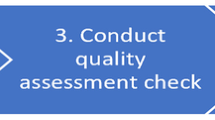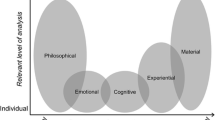Abstract
Studies on transitions to sustainable energy in cities point to different types of experimentation including niche experiments, bounded socio-technical experiments, transition experiments and grassroots experiments. This paper argues that experimentation in African cities cannot be definitively framed into such types because each case harbors a unique perspective with implications for how it is understood conceptually. This is based on a transdisciplinary inquiry into waste to energy pilots in an informal neighborhood of Kampala city, which demonstrated how a network of community actors overcome not only energy but also health and poverty-related challenges, through recycling waste materials for production of energy briquettes. Their experimentation is majorly driven by the following: (i) the desire to overcome confinement to services regulated by government and (ii) promoting alternative sources of cooking energy that stem from locally available technologies. Overall, the case study points to how transitions to sustainable energy in cities can start in experimentation at neighborhood scale, using alternative cooking energy solutions as the anchorage.
Similar content being viewed by others
References
Brown, H. S., & Vergragt, P. J. (2008). Bounded socio-technical experiments as agents of systemic change: The case of a zero-energy residential building. Technological Forecasting and Social Change, 75(1), 107–130.
Buyana, K., & Lwasa, S. (2016). Infrastracture governance at sub-national level: the case of Kampala city in Uganda. In E. Schoburgh & R. Ryan (Eds.), Handbook of Research on Sub-national Governance and Development. Hershey: IGI Global.
Clark, B., Brudney, J., & Jang, S. (2013). Coproduction of government services and the new information technology: investigating the distributional biases. Public Administration Review, 73(5), 687–701.
David, M., & Schönborn, S. (2018). Bottom-up energy transition narratives: linking the global with the local? A comparison of three German renewable co-ops. Sustainability, 10(4), 924.
Davies, M., & Swilling, M. (2015). Intermediaries and learning in sustainability-oriented urban transitions: A transdisciplinary study from Stellenbosch municipality. International sustainability transitions 2015 conference: University of Sussex, Brighton. 25–28 August 2015.
Davies, M., Swilling, M., & Wlokas, H. L. (2018). Towards new configurations of urban energy governance in South Africa’s renewable energy procurement programme. Energy Research & Social Science, 36, 61–69.
Davison, A., Patel, Z., & Greyling, S. (2016). Tackling wicked problems and tricky transitions: change and continuity in Cape Town’s environmental policy landscape. Local Environment, 21(9), 1063–1081.
El Barmelgy, I. M., & Aly, M. S. (2017). Key factors for sustainable industrial cities. Journal of Sustainable Development, 10(1), 41.
Elmqvist, T., Bai, X., Frantzeskaki, N., Griffith, C., Maddox, D., McPhearson, T., Parnell, S., Romero-Lankao, P., Simon, D., & Watkins, M. e. (2018). The urban planet: knowledge towards sustainable cities. In Cambridge University Press.
Evans, J., Karvonen, A., & Raven, R. (2016). The Experimental City. London: Routledge Earthscan.
Fraser, A., Leck, H., Parnell, S., Pelling, M., Brown, D., & Lwasa, S. (2017). Meeting the challenge of risk-sensitive and resilient urban development in sub-Saharan Africa: directions for future research and practice. International Journal of Disaster Risk Reduction, 26, 106–109.
Gasparatos, A., Doll, C. N., Esteban, M., Ahmed, A., & Olang, T. A. (2017). Renewable energy and biodiversity: implications for transitioning to a green economy. Renewable and Sustainable Energy Reviews, 70, 161–184.
Graesholm, E. (2012). Making slums governable: Integration and resistance in a Nairobi slum. The Journal of Politics and Society, 23(1), 218–251.
Haines, A., Smith, K. R., Anderson, D., Epstein, P. R., McMichael, A. J., Roberts, I., Wilkinson, P., Woodcock, J., & Woods, J. (2007). Policies for accelerating access to clean energy, improving health, advancing development, and mitigating climate change. The Lancet, 370(9594), 1264–1281.
Hill, D., & Connelly, S. (2018). Community energies: exploring the socio-political spatiality of energy transitions through the clean energy for eternity campaign in New South Wales Australia. Energy Research & Social Science, 36, 138–145.
Holmstedt, L., Brandt, N., & Robèrt, K. H. (2017). Can Stockholm Royal Seaport be part of the puzzle towards global sustainability?–from local to global sustainability using the same set of criteria. Journal of Cleaner Production, 140, 72–80. https://doi.org/10.1016/j.eneco.2013.05.010.
Hossain, M. (2018). Grassroots innovation: the state of the art and future perspectives. Technology in Society, 5(6), 10–31.
Jabareen, Y. (2013). Planning the resilient city: Concepts and strategies for coping with climate change and environmental risk. Cities, 31, 220–229.
Jarbandhan, V. D., Komendantova, N., Xavier, R., & Nkoana, E. (2018). Transformation of the South African energy system: towards participatory governance. In Systems analysis approach for complex global challenges (pp. 139–158). Cham: Springer.
Kleibert, J. (2017). On the global city map, but not in command? Probing Manila’s position in the world city network. Environment and Planning, 49(12), 2897–2915.
Kruger, W., & Eberhard, A. (2018). Renewable energy auctions in sub-Saharan Africa: comparing the south African, Ugandan, and Zambian Programs. Wiley Interdisciplinary Reviews: Energy and Environment, 7(4), e295.
Lang, D., Wiek, A., Bergmann, M., Stauffacher, M., Martens, P., Moll, P., & Thomas, C. (2012). Transdisciplinary research in sustainability science: practice, principles, and challenges. Sustainability Science, 7(1), 25–43.
Lemanski, C. (2017). Unequal citizenship in unequal cities: participatory urban governance in contemporary South Africa. International Development Planning Review, 39(1), 15–35.
Mauser, W., Klepper, G., Rice, M., Schmalzbauer, B. S., Hackmann, H., Leemans, R., & Moore, H. (2013). Transdisciplinary global change research: the co-creation of knowledge for sustainability. Current Opinion in Environmental Sustainability, 5(3–4), 420–431.
Mayoux, L., & Chambers, R. (2005). Reversing the paradigm: quantification, participatory methods and pro-poor impact assessment. Journal of International Development, 17(2), 271–298.
McLean, A., Bulkeley, H., & Crang, M. (2016). Negotiating the urban smart grid: Socio-technical experimentation in the city of Austin. Urban Studies, 53(15), 3246–3263.
Meijer, A., & Bolívar, M. P. R. (2016). Governing the smart city: a review of the literature on smart urban governance. International Review of Administrative Sciences, 82(2), 392–408.
Mitlin, D. (2008). With and beyond the state—co-production as a route to political influence, power and transformation for grassroots organizations. Environment and Urbanization, 20(2), 339–360.
Mosannenzadeh, F., Bisello, A., Vaccaro, R., D'Alonzo, V., Hunter, G. W., & Vettorato, D. (2017). Smart energy city development: a story told by urban planners. Cities, 64, 54–65.
Owusu, P., & Banadda, N. (2017). Livestock waste-to-bioenergy generation potential in Uganda: a review. Environmental Research, Engineering & Management, 73(3).
Papa, R., & Fistola, R. (Eds.). (2016). Smart energy in the smart city: urban planning for a sustainable future. Springer.
Parnell, S. (2016). Defining a global urban development agenda. World Development, 78, 529–540.
Patel, Z., Greyling, S., Simon, D., Arfvidsson, H., Moodley, N., Primo, N., & Wright, C. (2017). Local responses to global sustainability agendas: learning from experimenting with the urban sustainable development goal in Cape Town. Sustainability Science, 12(5), 785–797.
Ramaswami, A., Boyer, D., Nagpure, A. S., Fang, A., Bogra, S., Bakshi, B., Cohen, E., & Rao-Ghorpade, A. (2017). An urban systems framework to assess the trans-boundary food-energy-water nexus: implementation in Delhi, India. Environmental Research Letters, 12(2), 025008.
Raven, R. P. J. M., & Geels, F. W. (2010). Socio-cognitive evolution in niche development: comparative analysis of biogas development in Denmark and the Netherlands (1973–2004). Technovation, 30(2), 87–99.
Rybski, D., Reusser, D. E., Winz, A. L., Fichtner, C., Sterzel, T., & Kropp, J. P. (2017). Cities as nuclei of sustainability? Environment and Planning B: Urban Analytics and City Science, 44(3), 425–440.
Schlör, H., Venghaus, S., & Hake, J. F. (2018). The FEW-Nexus city index–measuring urban resilience. Applied Energy, 210, 382–392.
Schot, J., & Geels, F. W. (2008). Strategic niche management and sustainable innovation journeys: theory, findings, research agenda, and policy. Technology Analysis & Strategic Management, 20(5), 537–554.
Sengers, F., Wieczorek, A. J., & Raven, R. (2016). Experimenting for sustainability transitions: a systematic literature review. Technological Forecasting and Social Change.
Silva, A., & Stocker, L. (2018). What is a transition? Exploring visual and textual definitions among sustainability transition networks. Global Environmental Change, 50, 60–74.
Simon, D. (2010). The challenges of global environmental change for urban Africa. Urban Forum, 21(3), 235–248.
Simon, D., Arfvidsson, H., Anand, G., Bazaz, A., Fenna, G., Foster, K., Jain, G., Hansson, S., Evans, L. M., Moodley, N., & Nyambuga, C. (2016). Developing and testing the urban sustainable development goal’s targets and indicators–a five-city study. Environment and Urbanization, 28(1), 49–63.
Swilling, M. (2014). Rethinking the science-policy interface in South Africa: experiments in knowledge co-production. South African Journal of Science, 110(5–6), 01–07.
Swilling, M., & Annecke, E. (2006). Building sustainable neighbourhoods in South Africa: learning from the Lynedoch case. Environment and Urbanization, 18(2), 315–332.
Swilling, M., & Hajer, M. (2017). Governance of urban transitions: towards sustainable resource efficient urban infrastructures. Environmental Research Letters, 12(12), 125007.
Swilling, M., Pieterse, E., & Hajer, M. (2018). Futuring, experimentation, and transformative urban politics. In R. Poli (Ed.), Handbook of anticipation. Cham: Springer.
Trencher, G., Bai, X., Evans, J., McCormick, K., & Yarime, M. (2014). University partnerships for co-designing and co-producing urban sustainability. Global Environmental Change, 28, 153–165.
Van Breda, J., & Swilling, M. (2018). The guiding logics and principles for designing emergent transdisciplinary research processes: learning experiences and reflections from a transdisciplinary urban case study in Enkanini informal settlement, South Africa. Sustainability Science, 1–19. https://doi.org/10.1007/s11625-018-0606-x.
Wang, X., Li, Z., Meng, H., & Wu, J. (2017). Identification of key energy efficiency drivers through global city benchmarking: a data driven approach. Applied Energy, 190, 18–28.
Watson, V. (2014). Co-production and collaboration in planning–the difference. Planning Theory & Practice, 15(1), 62–76.
Wolfram, M. (2016). Cities shaping grassroots niches for sustainability transitions: conceptual reflections and an exploratory case study. Journal of Cleaner Production, 73(1), 11–23.
Funding
The study received a support from the International Council for Science (ICSU), under the Leading Integrated Research on Agenda 2030 (LIRA), GRANT NUMBER: LIRA2030-GR09/17.
Author information
Authors and Affiliations
Corresponding author
Additional information
Publisher’s Note
Springer Nature remains neutral with regard to jurisdictional claims in published maps and institutional affiliations.
Rights and permissions
About this article
Cite this article
Buyana, K., Byarugaba, D., Sseviiri, H. et al. Experimentation in an African Neighborhood: Reflections for Transitions to Sustainable Energy in Cities. Urban Forum 30, 191–204 (2019). https://doi.org/10.1007/s12132-018-9358-z
Published:
Issue Date:
DOI: https://doi.org/10.1007/s12132-018-9358-z




